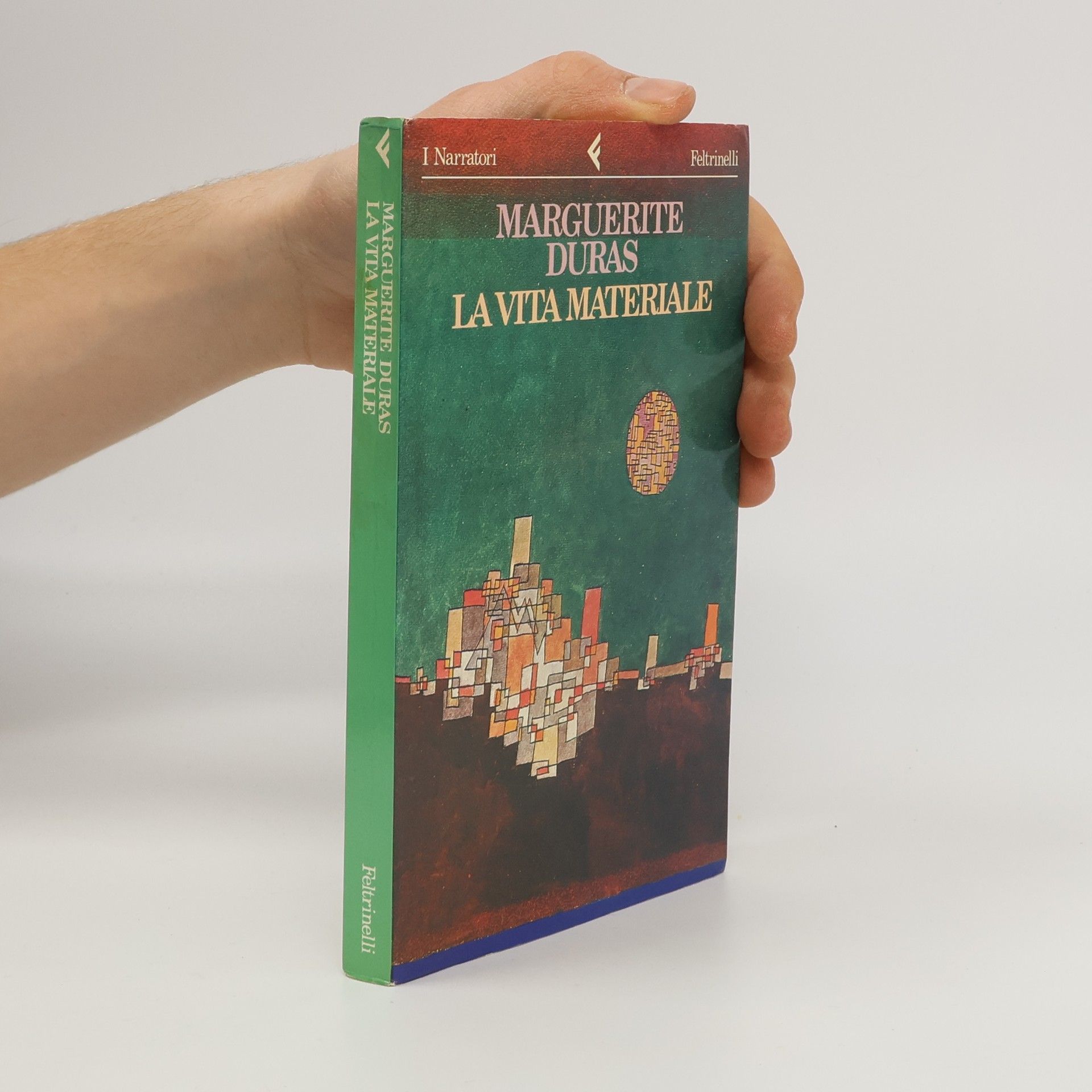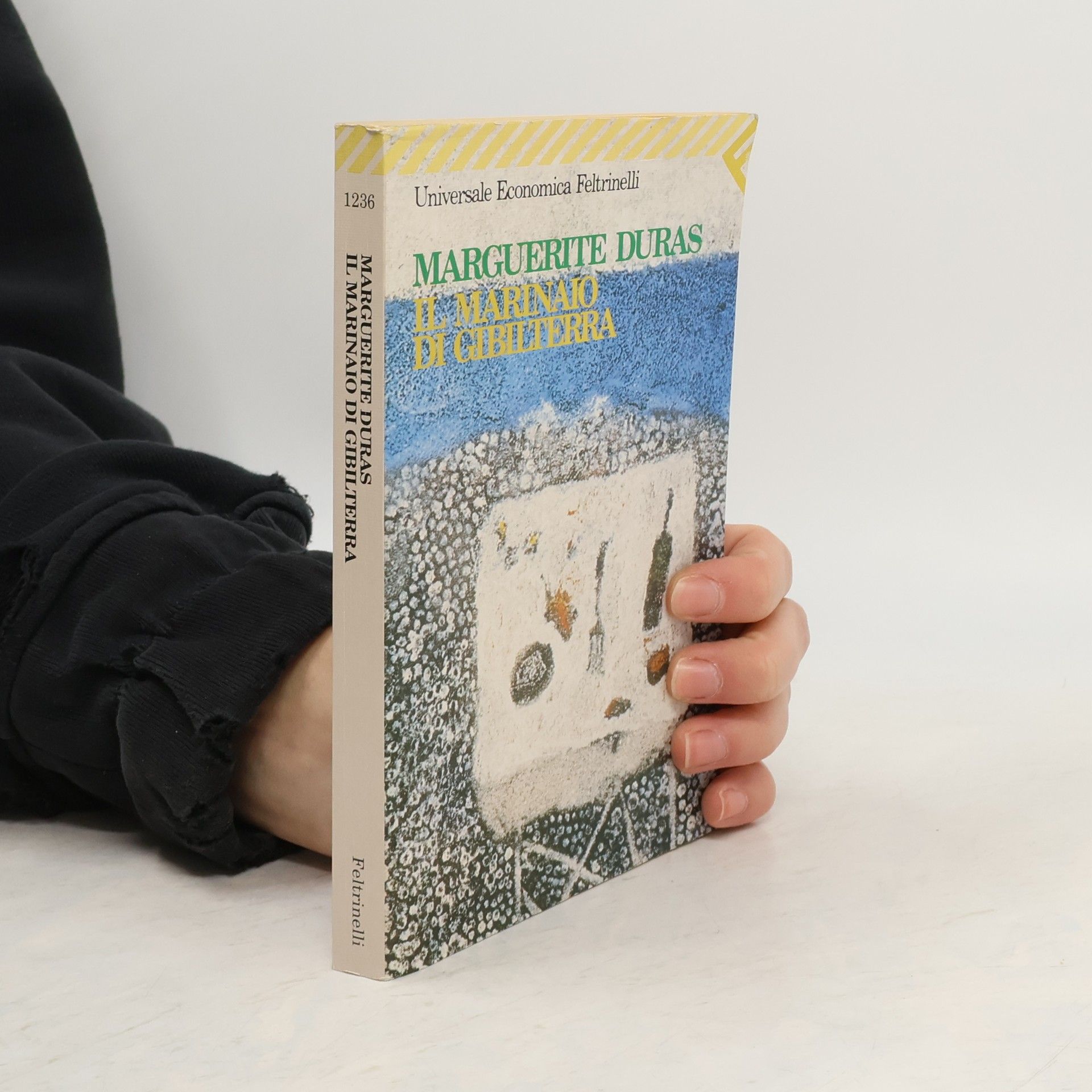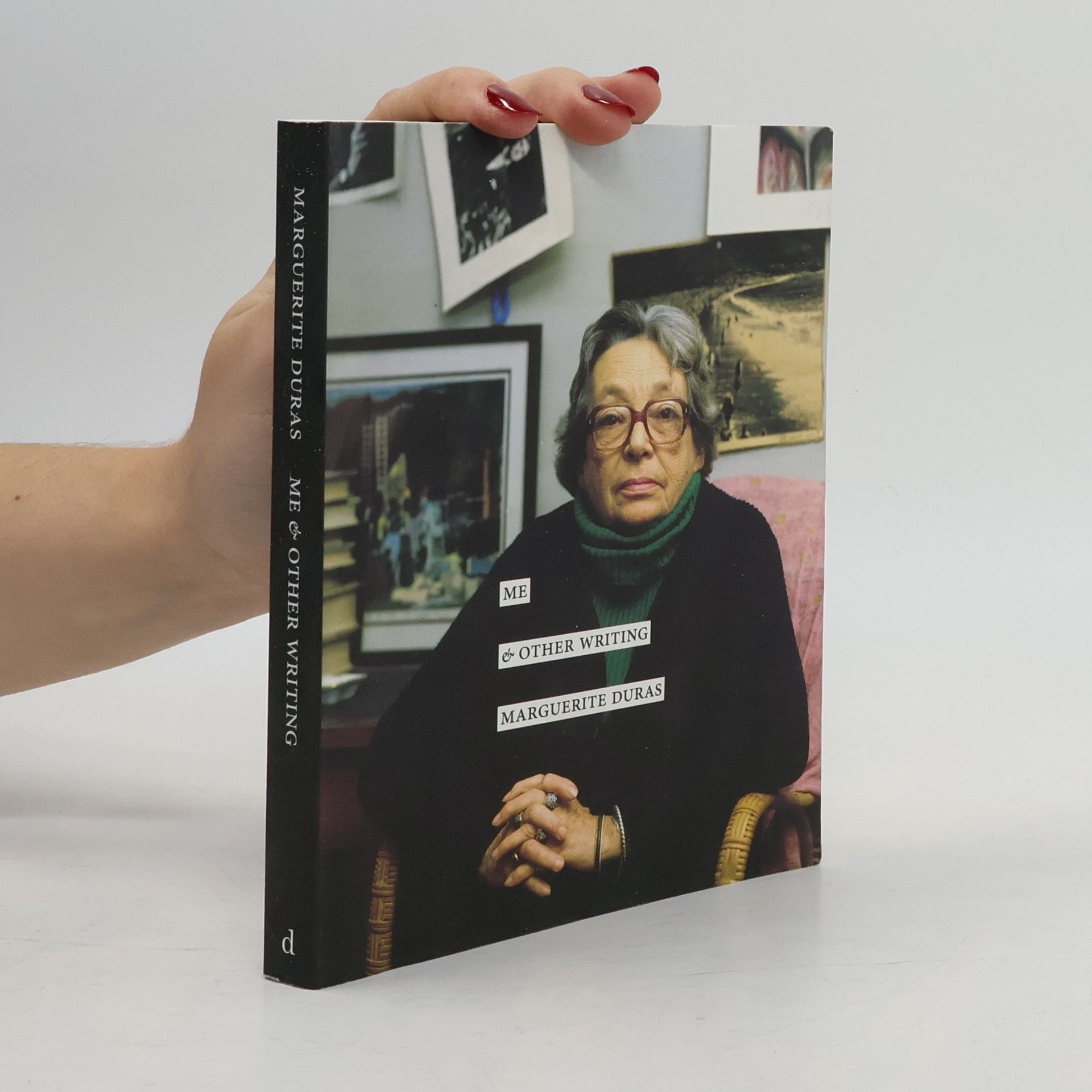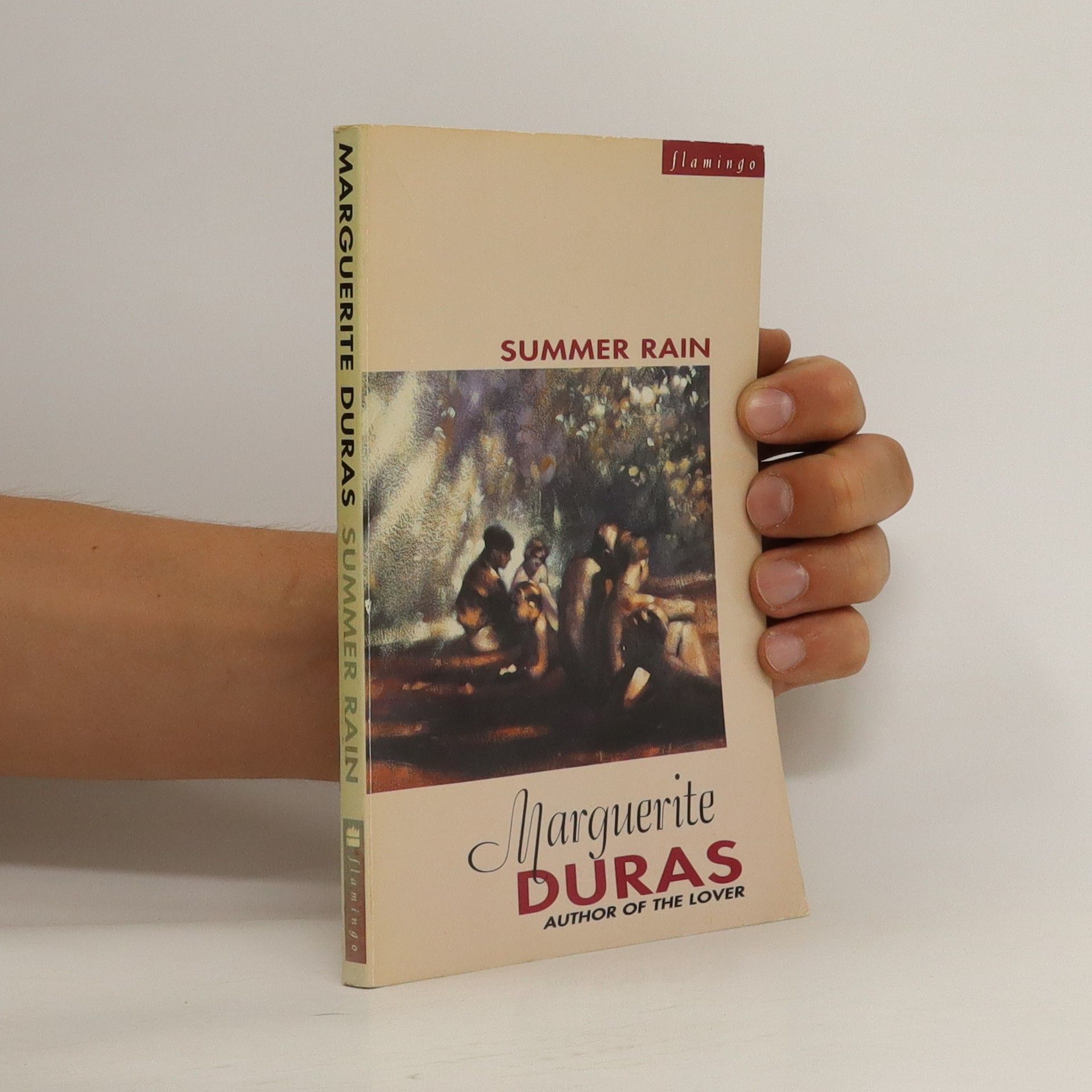Marguerite Duras Libri
Marguerite Duras fu un'autrice le cui prime opere narrative ebbero una forma piuttosto convenzionale, ma con Moderato Cantabile divenne più sperimentale. Ridusse i suoi testi per dare crescente importanza a ciò che non veniva detto, e fu associata al movimento letterario Nouveau roman, sebbene non vi appartenne mai definitivamente. I suoi film sono anch'essi sperimentali, spesso evitano il sonoro sincrono e utilizzano la voce fuori campo per alludere a una storia su immagini la cui relazione con ciò che viene detto può essere tangenziale. Duras esplorò frequentemente temi di memoria, desiderio e violenza, intrecciando elementi autobiografici con la finzione ed esaminando le complessità delle relazioni umane.







L'amante
- 95pagine
- 4 ore di lettura
La storia d'amore di una francese quindicenne con un giovane miliardario cinese, sullo sfondo di un ritratto di famiglia, nell'Indocina degli anni trenta. Racconto-rivelazione di lucidità struggente, di terribile e dolce bellezza. L'amante trasfigura e risolve integralmente in una scrittura spoglia, e prodigiosamente intensa, il complice gioco che la memoria e l'oblio ricalcano sulla trama della vita.
I Narratori - 348: La vita materiale
- 160pagine
- 6 ore di lettura
Universale Economica: L'amante
- 128pagine
- 5 ore di lettura
La storia d'amore di una francese quindicenne con un giovane miliardario cinese, sullo sfondo di un ritratto di famiglia, nell'Indocina degli anni trenta. Racconto-rivelazione di lucidità struggente, di terribile e dolce bellezza, L'amante trasfigura e risolve integralmente in una scrittura spoglia, e prodigiosamente intensa, il complice gioco che la memoria e l'oblio ricalcano sulla trama della vita.
The Suspended Passion: Interviews
- 184pagine
- 7 ore di lettura
A controversial figure of the postwar French literary and cultural scene, Marguerite Duras has exerted a powerful hold on readers around the world. This volume of interviews--hailed on its French publication as Duras's "secret confession"--offers readers a rich vein of new insight into her work, opinions, life, and relationships. The interviews that make up the book were conducted in 1987, when Italian journalist Leopoldina Pallotta della Torre met the seventy-three-year-old Duras at her Paris flat and convinced her to sit for a series of conversations. The resulting book was published in Italian in 1989, but it somehow failed to attract a French publisher, and it was quickly forgotten. Nearly a quarter of a century later, however, the book was rediscovered and translated into French, and, it has now become a sensation. In its revealing pages, Duras speaks with extraordinary freedom about her life as a writer, her relationship to cinema, her friendship with Mitterand, her love of Chekhov and football, and, perhaps most significantly, her childhood in pre-war Vietnam, the experiences that propelled her most famous novel, The Lover. A true literary event, finally available in English, The Suspended Passion is a remarkable document of an extraordinary literary life.
Me & Other Writing
- 204pagine
- 8 ore di lettura
The book features a collection of works originally published by Editions P.O.L in Paris, drawing from the themes explored in "Outside" and "Le Monde extâerieur." It presents a unique perspective on the interplay between external environments and personal experiences, showcasing the author's distinctive style and insights.
Suspended Passion
- 183pagine
- 7 ore di lettura
A controversial figure of the postwar French literary and cultural scene, Marguerite Duras has exerted a powerful hold on readers around the world. This volume of interviews--hailed on its French publication as Duras's "secret confession"--offers readers a rich vein of new insight into her work, opinions, life, and relationships. The interviews that make up the book were conducted in 1987, when Italian journalist Leopoldina Pallotta della Torre met the seventy-three-year-old Duras at her Paris flat and convinced her to sit for a series of conversations. The resulting book was published in Italian in 1989, but it somehow failed to attract a French publisher, and it was quickly forgotten. Nearly a quarter of a century later, however, the book was rediscovered and translated into French, and, it has now become a sensation. In its revealing pages, Duras speaks with extraordinary freedom about her life as a writer, her relationship to cinema, her friendship with Mitterand , her love of Chekhov and football, and, perhaps most significantly, her childhood in pre-war Vietnam, the experiences that propelled her most famous novel, The Lover. A true literary event, finally available in English, The Suspended Passion is a remarkable document of an extraordinary literary life.
An unemployed immigrant and seven children live in a condemned house in a suburb of Vitry. They survive on government grants and charitable handouts. The children are not sent to school, but instead wander through the town. Then one summer the eldest, Ernesto, is given a book.
In her last book, Marguerite Duras meditates with a fierce poetic fervor on facing death, her life’s literary work, and love. Sex, and death. All of Marguerite Duras's writings are suffused with the certitude that absolute love is both necessary (sex) and impossible to achieve (death). But no book of hers embodies this idea so powerfully, so excessively, as No More (C'est Tout), the book she composed during the last year of her life until just days before her death. No More (C'est Tout) is literature shorn of all its niceties, a shout from the depths of Duras's being, celebrating life in defiance of the death she knew had already entered her immediate future. In part, it is also Duras' raucous salutation welcoming death. No More is a collection as pure as poetry and her words and ideas recirculate in hypnotic fits of lucidity, desperation, and noise, but the overall effect is both unsettling and, at times, piercingly true.

